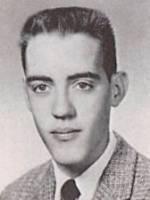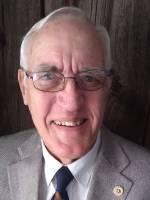

Dr. Bartholf led a noteworthy career as a veterinarian, while being a visible community leader, and advocate for the interests of farmers and agriculture.
After serving his country from 1966-1968 as a US Army captain in Vietnam, Lawrence established a veterinary practice caring for large and small animals in Ulster and Sullivan Counties, running it until his 2015 retirement.
In 1990, he received the first American Veterinary Medical Association Welfare Veterinarian of the Year ever awarded, in recognition of his role in the rescue and two-year-sustained cleanup and aftercare of more than 1,000 maltreated and abused horses, goats, sheep, pigs, cats, and dogs - as of his 2021 induction, still the largest case of animal cruelty in US history. This was done in the face of personal harassment and intimidation from the perpetrator. The case resulted in New York establishing criteria for felony animal abuse; even the most severe cases to that time were charged as misdemeanors.
Dr. Bartholf's volunteer leadership and involvement includes serving the New York Veterinary Medical Society his entired career, including 10 years as treasurer, and as president in 2005. In October 2013, he received the society's Distinguished Life Service Award.
He was also president of the Ellenville Public Library and Museum Board of Trustees, including chairing a building and fund-raising campaign raising $620,000 for a Community Room that opened in May 2000.
Lawrence served as Cornell's Class of '65 Scholarship fund-raising chairman for several years, as well as two terms on the Veterinary College Alumni Advisory Board. He was appointed by Governor Cuomo to the advisory board of Cornell's State Animal Diagnostic Lab.
He believes that the 99% of the public not involved in animal agriculture has little understanding of it, or appropriate appreciation for farms and farmers. He has testified before the Maryland, Maine, and Delaware state legislatures, as well as those of Chicago, New York City, and Philadelphia, in addition to appearing on radio and TV educating the public on the humaneness of animal agriculture.
